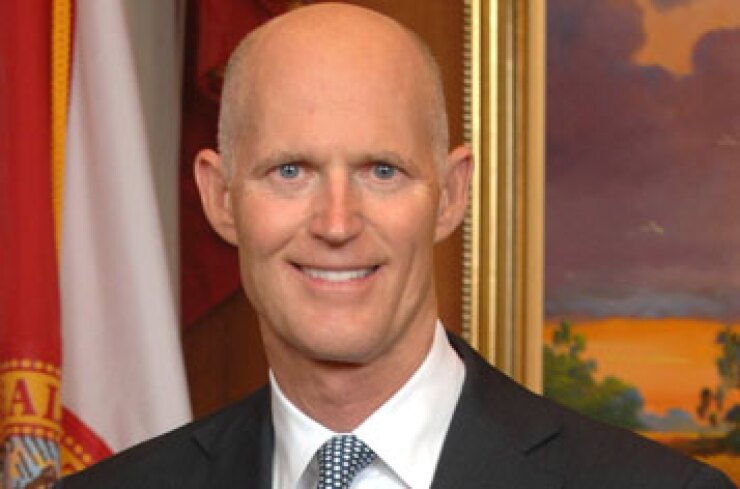
BRADENTON, Fla. - With Florida's economy on the upswing, revenues rising, and an election year around the corner, Gov. Rick Scott wants to cut most of the motor vehicle taxes and fees that hiked during the downturn to support the state budget.
The fee reductions, valued at $400 million, will be part of Scott's recommended fiscal 2015 budget to be released in January, and will include lowering the average annual motor vehicle registration by about $25.
"We want to create an opportunity economy in Florida, and letting people keep more of the money they make means families have more money to invest in their future," Scott said. "We want to create an economy that supports job creation for generations to come."
Scott, a Republican, made the rollback announcement late last week, and two days after filing for reelection to seek a second term in office.
State economists have projected about a $1 billion surplus in revenues next year, Scott has said he would ask the Republican-led Legislature to reduce taxes and fees by $500 million.
He did not specify Thursday what the other $100 million cut would be, but said it would be unveiled in his budget proposal.
Lawmakers said they generally supported Scott's idea, though House Speaker Will Weatherford, R-Wesley Chapel, couched his comments by adding that the Legislature will determine "the scope, amount and timing of the reduction in vehicle registration fees."
In a seven-page document explaining his accomplishments and other plans for next year's budget, Scott said that he will also require state agencies to cut their budgets by $100 million.
Scott also plans to continue his policy of using cash instead of bonds to finance capital needs.
He has significantly reduced the amount of annual debt since taking office, and said he would not allow any new long-term debt to fund roads, land purchases, or school construction "without specific and accountable returns on investment for taxpayers."
"Where possible the state budget will include the use of cash rather than bonds to further protect the state from consequences associated with massive amounts of taxpayer-funded debt," his budget policy document said.
In a general revenue estimating conference Dec. 6, state economists upped their forecast of the windfall the state can expect in fiscal 2015 to $965.2 million, or 3.8%, over the current year. That's the unallocated surplus over funded traditional budget needs.
In August, revenue estimating gurus projected that the state would have an additional $845.7 million to spend in the budget.
The larger revenue increase projected in December was bolstered by the addition of Insurance Premium Tax dollars attributable to the implementation of the federal Affordable Care Act, which is projected to increase state revenues by $76.4 million in fiscal 2015, economists said.
The annual Florida legislative session begins March 4.





